 written by Kami Bailey
written by Kami Bailey
Most community banks desire to make loans to small businesses to both help support their communities and to boost bank profits. But not every small business that applies for a loan will be approved.
Fortunately, there’s an alternative to traditional loans that could enable your bank to say yes to small businesses you might otherwise have to decline for a loan. We’re talking about loans guaranteed by the U.S. Small Business Administration (SBA). The SBA guarantee of a portion of the loan enables banks to lend money to some small businesses that wouldn’t qualify for financing based on normal underwriting guidelines.
How can SBA loans benefit your bank?
SBA loans are proving to be a lucrative funding vehicle for many community banks today by providing healthy margins and the opportunity to earn additional fee income via servicing and gain on sale. This is true whether your bank holds onto SBA loans or sells the guaranteed portion of the loans into the secondary market.
Selling SBA loans will provide additional liquidity that enables you to make even more small business loans, while holding them could enable you to leverage your capital and reduce portfolio risk. Guaranteed portions of SBA loans are generally subject to zero-percent risk weighting for capital purposes. In today’s environment, many banks are finding that the potential for gain on sale outweighs the benefits of holding onto the guaranteed portion of SBA loans.
Pay Attention to Loan Servicing
Servicing is critical when making SBA loans because, like any guarantor, the SBA doesn’t like writing checks if it doesn’t have to. Stringent rules, including strict monitoring and reporting requirements, must be followed carefully in order to claim the SBA guarantee on a loan gone bad. In this scenario, the first thing the SBA is likely to do is determine if your bank followed standard operating procedures.
For example:
- Has the minimum debt service coverage of 1.15 on both a historical and projected basis been achieved for SBA loans of $350,000 or more?
- Have principals pledged personally owned real estate as collateral on SBA loans that are not otherwise fully secured?
- Was equipment valued at up to 80 percent of orderly liquidation value and real estate at 85 percent of appraised value for purposes of securing the loan?
- Were the borrower’s financial statements current within 180 days of the loan application?
- Did you obtain and analyze annual financial statements from the borrower and perform annual property inspections?
Infrastructure and Expertise Are Critical
It’s important to make sure your bank has the appropriate infrastructure in place before embarking on an SBA lending initiative. You should also hire an expert who specializes in SBA lending if you don’t currently have one on staff. This individual should understand everything involved in SBA loan underwriting, monitoring, servicing, SOPs and the like.
Give us a call if you would like to discuss the benefits of SBA loans 417-881-0145.

